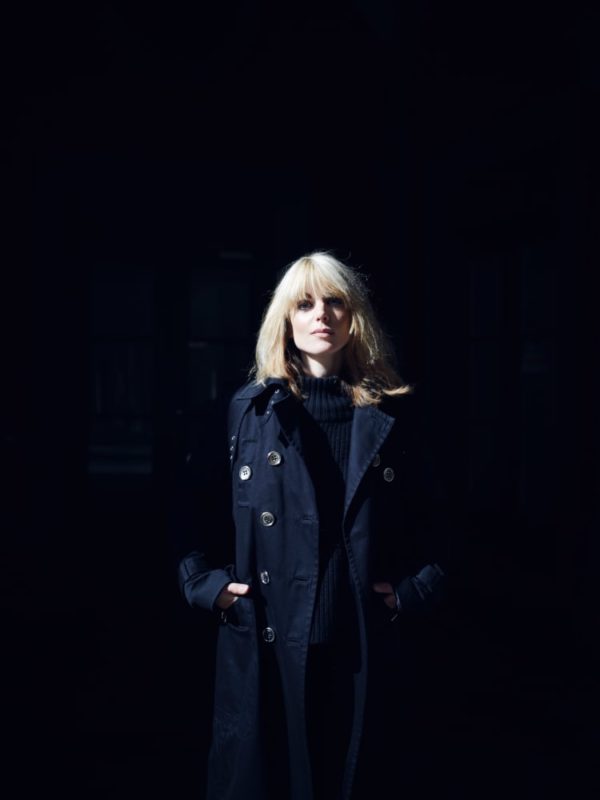Playtime: The Discovery of Lightness
Dr. Rebekka Reinhard is a philosopher, author, and speaker based in Munich. She is the vice-editor of Hohe Luft magazine.
Almost like an oracle, one can ask her anything and she will spontaneously come up with clever knowledge and deep cultural reflection. I asked her about playfulness in work, the meaning of Wu-wei, and transcendental moments of lift-off.
Written for Organics magazine, this interview originally appeared in German in 2020. Image used with kind permission by Tanja Kernweiss.
(Simon Schreyer, 2020)

Dr. Reinhard, is talent overrated?
I think if you want to be happy at work and enjoy your professional life, then you should choose a job that you are talented for. However, this should not be confused with the term potential, a mistake that is made all too often these days. When someone paints a well-done picture of a flower, the immediate insinuation is: ‘Whoa, you have talent!’ What this usually means is that there is potential for the next painting to be a still life on a large canvas in the style of the Dutch masters.
Do you mean that talent is immediately linked to an external expectation of increasing success?
Right. We are such a meritocratic and success-oriented society that we view any potential like stock values on the stock exchange. It always means future success. This is not the same as talent. Talent is an ability you were born with, a gift of genes, a gift of nature. Developing this ability ultimately has a lot to do with self-responsibility and discipline. This applies to the fine arts, but also to “completely normal” professions. As a keynote speaker and book author, I can say from my own experience: It’s 5% talent and 95% hard work.
Is the development of a certain talent also a prerequisite for a fulfilling life?
If you are not a Buddhist, then you must realize that we only have this one life and that life is finite. And then think: how much of our lives do we spend working? Whether employed or freelance, we all hustle between work-life and zoom conferences with hardly any time limits. But if I additionally work in a job that I have no natural inclination for, then the question arises as to whether my life can actually be as successful when viewed as a whole. Because then I also miss out on these moments of happiness, in which I use my unique talent and develop it.
Taoism, a school of wisdom from China, cultivates the strategy of Wu-wei: doing without intention. Can we learn from the ancient Chinese?
The Chinese characters for Wu-wei literally mean: In doing nothing, nothing remains undone. If I first wait and see how things develop and – very importantly – practice patience, I can see in which direction a situation is going in a much more energy-efficient manner. Maybe even in my favor! In doing so, I step into the background as a singular heroic subject and can make friends with the external circumstances and thus resonate with the world. According to the philosopher Lao Tzu, this is the true proactive approach, because I actively wait for the problem at hand to be solved for me. This way of thinking is also found in all Asian martial arts. That’s how I emerge as the winner without having tried too hard – with ease.
How important is it to be playful with life instead of seeing it as a mixture of cramp and struggle?
What I’m saying may sound paradoxical, but adopting a playful attitude with corresponding ease in life is the result of many years of work and discipline. I don’t want to resolve this contradiction at all, because I believe that life is extremely paradoxical anyway. There is no happiness without the experience of unhappiness, and no enjoyment without the experience of renunciation. Without the bone-hard work of the ballerina, there would be no ballet performance full of playful-looking lightness. But it is precisely this moment of floating that opens up a space of possibilities in which one can really breathe. And best of all: Lightness and playfulness also make people human.
Does this also apply to the lightness of living in general?
This playful attitude also allows us to look at ourselves ironically. A playful attitude towards the world means taking life’s problems seriously, but also not taking them too seriously – in a manner that resembles a dance. After all, everything is relative. What is my life in relation to the universe? I’m a tiny filament that can burn out at any time. Given that fact, why shouldn’t I be able to go through life with ease? I think this attitude of lightness also gives me the courage to dare something that I haven’t exactly calculated beforehand. And I don’t even think that you need a special talent for this ease (laughs).
✺ ✺ ✺
TEDxTalk in English by Dr. Reinhard on The Absurd, at Heidelberg University